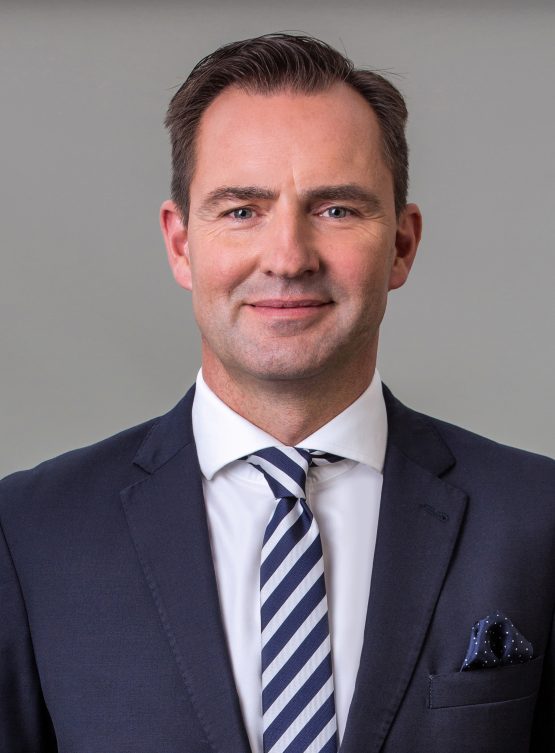The future of South Africa’s motor industry is symbiotically linked to the future of Africa, says Thomas Schaefer, chairman and MD of Volkswagen South Africa.
“Where else can we grow exports to? The US is closing its doors on us, the European market is saturated, the UK is in a state of flux with Brexit, and China has never been an option.”
The answer, he says, lies in Africa. There are a billion people on the continent, yet there are only 20 vehicles to every 1 000 people. In South Africa, this number is 150, in Europe it’s 650 and in Germany specifically, it’s 680. “We don’t want to increase Africa to European levels, but imagine if one could increase a country like Nigeria to a density of 150 vehicles per 1 000 people? That would make local production feasible.”
Last month VW signed a memorandum of understanding (MoU) with Nigeria to develop – or actually reignite – an automotive hub in that country. This came a day after the signing of a MoU in Ghana whereby Volkswagen committed to setting up a vehicle assembly plant and conducting a feasibility study for the development of an integrated mobility solution in Ghana. The company has similar agreements in Kenya and Rwanda, and is on the brink of signing an agreement for an assembly plant with the Ethiopian government.
Schaefer was talking to Moneyweb about VWSA’s ambitious expansion beyond South Africa’s borders. This expansion is closely aligned with his drive to participate in the creation of a pan-African automotive industry.
“Some people see our ambition to expand as a threat to the South African auto industry,” he says. “This is rubbish. I want the local industry to thrive. But with current production [of all manufacturers] stuck at about 700 000 cars a year, which is 0.6% of global production, we clearly need to do something.”
Supporting the growth of a pan-African auto industry is an integral part of the vision. Other African countries have aspirations to build vehicles, create jobs and preserve forex. “And if we don’t help them to do so, then someone else will.”

VWSA chairman and MD Thomas Schaefer has operated in emerging markets for 26 years. Picture: Supplied
While VW is working with individual governments to overcome hurdles and establish a manufacturing platform in their respective countries, Schaefer believes it is essential to work with a common market in mind. “In the 1990s countries like Thailand, Malaysia and Indonesia were all at each other’s throats and their [auto] industries remained sub-optimal for years. Once they learned to collaborate, all three markets experienced growth.”
Africa is littered with failed manufacturing ventures. The vehicle market is undeveloped, petrol is of a poor quality, conducive government policies don’t exist, and even if they did, there is little in the way of finance for new cars, forcing buyers to pay cash or absorb exorbitant interest rates.
While VW is happy to work from the ground up to find solutions, policy certainty is key, says Schaefer. With this in mind it is collaborating with the Dti, the African Association of Automotive Manufacturers (AAAM), and former trade and industry minister Alec Erwin. Erwin is a consultant who is helping the AAAM to craft an automotive industry policy framework in Nigeria, among other countries.
VW did not pick its first five African investments using typical market indicators like the size of the vehicle market and used car sales. If it had, it would never have invested. Instead, it ranked countries according to the ease of doing business, GDP growth, political stability and so on. On this basis, the company picked Kenya, Rwanda, Nigeria, Ghana, and then Ethiopia as investments to start with.
There are many hurdles to overcome – the affordability of new cars is another constraint. “In a market of a billion people, possibly two million can afford to buy or finance a new vehicle – and many of those are in South Africa.”
With this in mind, VW is funding the development of a mobility services business (by initiating a ride-hailing service first, followed by a car-sharing service) in Rwanda, where its assembly plant is up and running. It seeded the market with 800 of its vehicles, with drivers trained and employed by VW itself. “At this point, our intention is less about making money and more about creating the volumes,” Schaefer says.
“It will take Africa 10 to 15 years to build an industry similar to SA’s. However, when we started producing cars in China 30 years ago people laughed at us. Today we produce four million cars a year in China.
“When industrial spirit and political will come together you can move mountains. Africa is the last frontier. Let’s stop protecting ourselves in SA – let’s reach out and do something African. Now is the time.”



